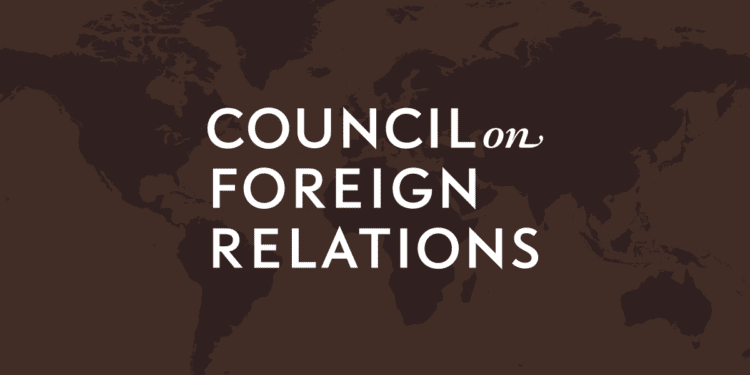More on:
Barbados
SHAH: In that context, how are [developing] economies supposed to invest in health, in education, in greening their energy economies, and expanding efforts to build infrastructure for growth?
The World This Week
A weekly digest of the latest from CFR on the biggest foreign policy stories of the week, featuring briefs, opinions, and explainers. Every Friday.
MOTTLEY: Well, how frank do you want me to be? […] Most of these countries started without a development compact. They started having been the victims of the extraction of wealth for centuries. It therefore meant that you had undeveloped systems of education, undeveloped systems of healthcare, no housing, very limited capacity in terms of the treasury. And then you all of a sudden ask them to adjust to these multiplicity of global challenges, very little of which they have contributed to. And then, say, go and incur more debt. And then when you do it, then you realize that I’m crowding out this fiscal space that I have for education, for healthcare. So we are being, as I’ve said over and over, victims twice, both in terms of the extraction of wealth for the industrial revolution and then the double jeopardy comes because that same Industrial Revolution has put us on the front line of the climate crisis. Now, when you add to that the fact that the colonial structures and relationships of power were cemented in the context of the international institutions, be it the U.N. or the IFIs, that’s the triple exposure to jeopardy, because it then means that you don’t have the capacity to change the trajectory or to change the attitude of these institutions.
Â
On Protecting the Global Public Commons:
MOTTLEY: With the World Bank, the fundamental reform that is needed, I think, is to make it fit for purpose for the third decade of the twenty-first century. If it was formed today, it wouldn’t only be about reconstruction and elimination of poverty; it would be the guardian of the global public commons. And if it is to be the guardian of the global public commons, then it needs revenue to be able to support that role. And that revenue can’t only come from public money, quite frankly; that revenue has to start to take into account that since the 1940s multinational corporations have a far bigger footprint than in many instances some countries across the world. And philanthropy is a major source of funding, as you well know, that has made a lot of wrong things right.
So what do we do? We first established a principle of how do you fund those global public goods. Well, if you helped contribute to the problem, you should help contribute to the solution. And if you’re going to benefit egregiously from the solution above a certain rate of return, then you should also leave two, three cents on the table of every dollar for it. If we started to do that alone and we looked at shipping, aviation, oil and gas, financial services—I should perhaps tell you what the global public goods are because then, when I call big pharma and big tech, you begin to know that we’re not talking about climate and biodiversity loss alone; we’re talking about the victims of fragility and conflict. We’re talking about water and food insecurity. We’re talking about pandemics, both the traditional one and the slow-motion silent one like antimicrobial resistance, for which we hope to have a high-level political declaration at the U.N. tomorrow. And we’re talking about big tech—sorry, we’re talking about digital divide and artificial intelligence that may be unregulated. And finally, we’re talking about our soil health, because the declining yields in soil will make—put us in a serious, serious battle for food security in the next twenty, thirty years.
It therefore means that the principle extends to each of those. So if big tech has helped contribute to the problem, help me solve and bridge the gap. Big pharma, we had two—twenty companies doing antibiotic research in 2000; we have four. I give you these examples to show that we’re not asking to bankrupt anyone. What we are saying: Anywhere between one cent and five cents, leave on the table. Value of global shipping, $7 trillion last year. One percent—cents on that is 70 billion (dollars). But the most important thing is that is recurring. So instead of asking countries to put a one-off hundred-billion dollar to help you, you are creating a pipeline of recurring funding for an institution to be fit for purpose.
More on:
Barbados
Â
On Garnering Political Will:
MOTTLEY: But here’s the deal. Everybody has come up with a declaration, including us. So I’ve said, look, roll out your sleeves now. Let’s do the heavy lifting. Almost 60-70 percent of each of these declarations say the same thing. Stop talking on parallel tracks. Let us see where the commonalities are in the next few months. Let us agree that we have consensus on this. And let us identify then what remains outstanding. And work our way towards, next year, the Financing for Development Conference in Seville, Spain, and also COP-30 by Brazil. If we—and why am I saying the end of next year? Finance is not the destination.
The destination is the actual adaptation projects being executed. And you’ve just heard me say, why I have to both repair and build a new fishing harbor is because you need studies. You can’t just go and put down things without feasibility studies as to what will be the impact on currents, or erosion, or all of those things. So I genuinely believe that we need to summon the political will. We had a luncheon today with President Macron, and with President Lula, and with the prime minister of Portugal, and president of Colombia, and a number of other persons. So there’s a lot of activity. Earlier this week the chancellor of Germany organized another small group of us. There’s a lot happening in terms of the conversation.
We need now to bring it together. And whether it is the U.N., or whether it is us as political leaders of the world, to treat the urgency. My role is just to keep making noise to remind people, hey, clock is running out. (Laughter.) The clock is running out. And we will continue to say so, not because we want to be obnoxious but because if you in the northern worlds don’t want additional migrants, and if you want global stability, and you don’t want the risk of more pandemics, and you don’t want the risk of more coups, and you don’t want the risk of more violence and war, well, then the important thing to do is act proactively.
And the proactive action is will we be equal in this generation to the challenges that face us in a way that those who stood in World War II after the victory were equal to the challenges which faced them? They cannot be condemned because they were creatures of their times. And in their times, we just weren’t part of the equation. But for today, where we know better and where we can do better, we must do better.
Â
On Promoting Long-Term Financing:
MOTTLEY: The bottom line is, the geopolitics of having to go for exceptional access does not work. When I didn’t agree to Guaidó, I found out that very clearly. But it didn’t bother me, because we learned to be friends of all and satellites of none when we became an independent country. So I impart that for what it is worth. Because we kept arguing that, look, there is an inherent vulnerability, we have seen progress—because the World Bank admitted us back into IBRD financing earlier this year, which means that we don’t have to rely on exceptional access. But having said that, the terms and conditions of that for vulnerable countries are still not appropriate.
And we’ve said, the direction in which Ajay is going with the establishment of that new instrument for—fifty-year instrument for vulnerable countries, the problem is that it’s limited to cross-border activity within the context of climate. And I’m saying no. It needs to be broader, because I shouldn’t have to do a cross-border project to be able to get fifty-year money to build resilience. Secondly, Kristalina has put in place a project that is not limited to low-income countries, like the PRGT is, but in fact, the RST says, we see you as a middle-income, vulnerable country. And therefore, we are prepared to give you twenty-year money with a five-year moratorium. We’re going in the right direction, but we need other instruments because I can’t build schools and hospitals with fifteen-year money, or even twenty-year money easily. And most of it is ten- and fifteen-year money that is given to us for development projects. […]
SHAH: You’ve spoken eloquently about how, you know, the U.K. used fifty-year money to build out its own infrastructure. And I think—I think it’s easy to forget—
MOTTLEY: Well, fifty—the U.K. used—let me tell you, the U.K. used—they raised bonds in 2014 and—sorry—1914 and 1917 to fight World War I. It translated that in 1932 to a perpetual bond, which was only repaid in 2014. So effectively, the U.K. refinanced its reconstruction from the two world wars with a hundred-year bond, because that’s what it needed. Germany had its debt service capped in relation to its export earnings after World War II. The U.K.—and we talk reparations. The U.K. paid slave owners twenty million pounds in 1834 and only repaid the money a few years ago in this century. So the notion of long-term money is well-known to our countries, and I’m sure if I go across the G-7 countries and do a little research I’ll find more examples.
All we’re asking for is a consideration—think about building a school. At least give me a little time for the child to leave university and get a job to be able to help pay back for the school, because they can’t do that if it’s fifteen-year money. […] If it’s thirty-, forty-, and fifty-year, I have a reasonable chance.
Â
On Innovative Sources of Capital:
MOTTLEY: Now there are not 10,000 oil and gas companies in the world; there are a handful. But we keep talking about each other, and we keep talking at each other. I want us to sit in a room around a table, and I said to President Macron that I think you and President Lula, you and President Lula, you both have state oil companies. Convene a meeting. Let us sit in a table around—because there’s a win-win. They don’t have a plan to live on Mars. (Laughter.) They don’t. So therefore, we have to leave here because their children are going to be living in Shanghai when Shanghai is at risk. Their children are going to be living in Miami and New York when Miami and New York are at risk. We are only the canaries in the mine, and we already see what the wildfires are doing in Greece, what they are doing in California, what they are doing in Canada. We see the floods in Nigeria, and to add that to the insecurity of the citizen, insecurity that’s taking place with Boko Haram and others, to add that to the four or five other coups that you’ve seen in Africa—come, come, come. We can do better. We have the experience of history, we have the creative capacity. All that is needed is political will, thank god. It’s not a new technology that has to be developed. It’s a yes or a no. And let’s get the yeses.
Â
Compiled by Justin Schuster.
Source link : http://www.bing.com/news/apiclick.aspx?ref=FexRss&aid=&tid=670466eba8ef4b009206dc29005da271&url=https%3A%2F%2Fwww.cfr.org%2Farticle%2Ffive-highlights-our-conversation-barbados-prime-minister-mia-mottley&c=8483184916185168032&mkt=en-us
Author :
Publish date : 2024-10-07 11:46:00
Copyright for syndicated content belongs to the linked Source.











